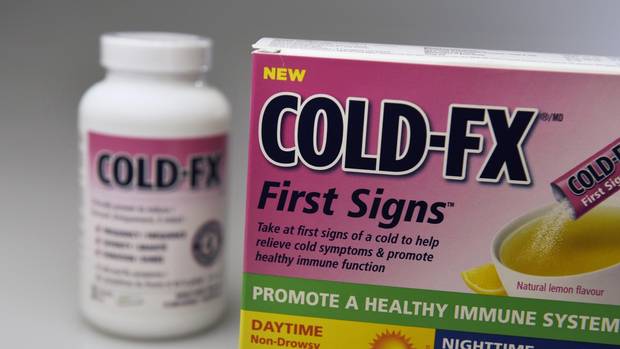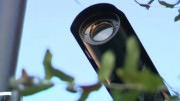The makers of Cold-fX are in court fighting allegations they ignored their
own research and misled consumers about the short-term effectiveness of the
popular cold and flu remedy.
Valeant Pharmaceuticals was in British Columbia Supreme Court on Monday,
opposing an application to grant the lawsuit class-action status.
Vancouver Island resident Don Harrison launched a claim in 2012 against
Valeant and its subsidiary, Afexa Life Sciences, over advertising saying that
Cold-fX offered “immediate relief of cold and flu symptoms” if taken over a
three-day period at the first sign of illness.
Harrison’s notice of claim said Valeant and Afexa continued to “knowingly or
recklessly” promote Cold-fX despite evidence the natural-health product only had
a possible positive impact after being taken daily for prolonged periods of
two-to-six months.
“The gist of the case is that people paid money for a worthless product …
and the money they spent should be returned,” said Harrison’s lawyer, John
Green, in a interview.
Valeant also unnecessarily exposed its customers to a health threat by
distributing a useless drug with a risk of adverse side effects, he said.
The Laval, Que.,-based company denied the accusations in a statement and said
it will fight the application for class-action certification.
“Valeant believes the suit is without merit and is vigorously defending this
matter,” said the document.
None of the allegations have been tested in court.
Afexa is the original manufacturer and licence holder of Cold-fX and was
bought by Valeant in 2011.
Valeant has been marred by a succession of controversies in recent months
that have sapped its stock value and hammered its reputation, leading the CEO of
the embattled Quebec drugmaker to step down last month.
The series of setbacks include gouging customers by hiking drug prices and
filing misstated earnings, the latter of which it blames on its former chief
financial officer.
Green also alleged Valeant and Afexa kept quiet about an internal study
conducted in the early 2000s that contradicted the health claims around
Cold-fX.
“The defendants knew at least as early as 2004, when they had a study done
themselves, that Cold-fX might be even less effective than a placebo,” he
said.
“The study actually showed the placebo to be more effective at relieving
(some) cold symptoms than Cold-fX.”
The study found the product effectively reduced the severity of a runny nose
during the early days of a respiratory infection, but that it had limited
efficacy in treating other symptoms, particularly a cough and stuffy nose.
If the case receives class-action approval, anyone who bought Cold-fX for the
short-term relief of cold and flu symptoms will be able to apply to a fund that
will be created to get their money back, said Green.
He estimated the total to be refunded would amount to about $500-million.
That calculation uses $50-million per year in estimated revenues for Valeant
from Cold-fX, then assumes a 100-per-cent markup, over a five-year time
period.
Because of differences in provincial law, a court victory in B.C. wouldn’t
allow people outside the province who bought Cold-fX to make a claim, said
Green. For that reason, an identical lawsuit has been launched in Saskatchewan,
where a positive ruling would apply to everyone across the country.
A successful judgment from a B.C. representative plaintiff could be taken to
Saskatchewan to bolster the case in that province, he said.
Valeant is expected to begin its defence on Tuesday or Wednesday.
Source: www.theglobeandmail.com




